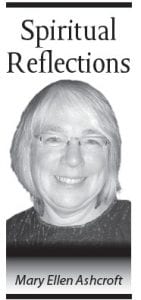Under apartheid, many South African Christians claimed that racial discrimination was supported by the Bible. Others argued that the church should be saving souls, avoiding politics. Still others (like the Anglican church) were struggling to dismantle apartheid. Anglican Archbishop Desmond Tutu said this of the churches ignoring or supporting apartheid: What Bible are they reading?
It’s a good question. When you see the controversies raging between right and left and hear people arguing opposite sides based on what their Bible so clearly says—you’ve got to wonder: What Bible are they reading?
The Bible is an extremely complex book (actually many books)—written over hundreds of years by a multitude of authors, in a variety of genres, for many purposes. This is not a book that can be read “flat” as if every single verse is true in exactly the same way.
Many years ago, when I was a fundamentalist, our group would say, “The Bible says it; I believe it; and that settles it.”
What I didn’t realize was that the Bible I was reading was carefully selected by Pastor Mel, even down to the kind of Bible we all carried—The Schofield Reference King James Version. I remember being shocked when I happened upon Matthew 25, where Jesus talks about people being judged by their treatment of the hungry, naked and those in prison. “Honestly,” I thought, “you’d think Jesus would know that you’re not saved by works—but that it’s by accepting Jesus Christ as your personal lord and savior!”
Faced with the Bible’s complexity, many opt for a simple response: one is fundamentalism, which reduces the whole of the Bible to a flat text, out of which a verse can be pulled randomly with equal authority. Another is to dismiss the Bible—to see scripture as a quaint, irrelevant collection—to be read like Virgil’s Aeneid.
But there’s a third way—struggling with the Bible as a text that calls us to question the status quo. If society is marching toward war, we need to grapple with the words of Jesus on peace. If society is sliding toward sexual promiscuity, we need to consider Paul’s instructions to the Christians at Corinth.
But because the Bible is such a demanding book, we need to be aware of how we are reading it. Because how we read determines what Bible we are reading.
Inevitably, we make choices in how we read—just as in my fundamentalist group. Many mainstream denominations put the gospels at the center of their reading. If we want answers about an issue, we first ask, “What did Jesus say?” “What did he do?” Only after those questions are answered do we turn to the New Testament letters and the Old Testament, with those taking a less central position.
In more fundamentalist denominations, the epistles (particularly Paul’s letters) are seen as central. In this realm the gospels tend to be seen as illustrations of the really meaty material in the epistles.
Why would that matter? To choose a non-controversial example— what does the Bible say about same sex marriage within these two traditions?
Well really it says nothing, since this is a relatively new concept— just like neo-natal care is. So we end up having to grapple with scripture.
From a fundamentalist approach—with the epistles seen as the central authority—well, clearly Paul condemns homosexuality, so that settles it. Leviticus condemns homosexuality. In a fundamentalist Bible—the question of same sex marriage is clear: It is bad.
From a mainstream tradition, with the gospels central: well, Jesus practiced radical acceptance of society’s outcasts. He never mentioned homosexuality, slamming greed and cold heartedness instead. Stepping back and looking at the whole of scripture, this tradition would say, “Covenant is absolutely key to the big story— that people thrive in the stability of covenant—whether in society or in marriage.”
Paul’s thoughts on the subject? He was probably referring to the common practice at the time of men initiating boys into sexual practice. Leviticus—well, shellfish and mixed fiber clothing are also banned. In this mainstream Bible—the question of same sex marriage seems clear: It is good.
Because of my background as a fundamentalist, I can see that most of those who are against same sex marriage are not bigoted— they really believe the Bible teaches that this is wrong. And I invite those coming from a more fundamentalist perspective not to think of mainstream interpretation as perverse, but as a different way of trying to understand.
Maybe we could be open enough to really hear each other.
Because most often our minds are changed, not by arguments, but by encounters. Twenty years ago, a very gifted friend followed her calling and went to a seminary where most of her fellow students believed the Bible clearly taught that women shouldn’t be ordained. Yet as they worked alongside my friend, heard her story, saw God’s work within her, they would come to her and say, “You know, I’ve realized that the Bible says something different than I thought.” Their face to face experience helped to shift their sense of what the Bible says.
What Bible are they reading? What Bible are we reading? One that is maddeningly complex and demanding. One that invites our grappling. One that requires love above all else.
Each week a member of the Cook County Ministerium will offer Spiritual Reflections. This week’s contributor is Mary Ellen Ashcroft, Vicar of Spirit of the Wilderness Episcopal Church.



Loading Comments